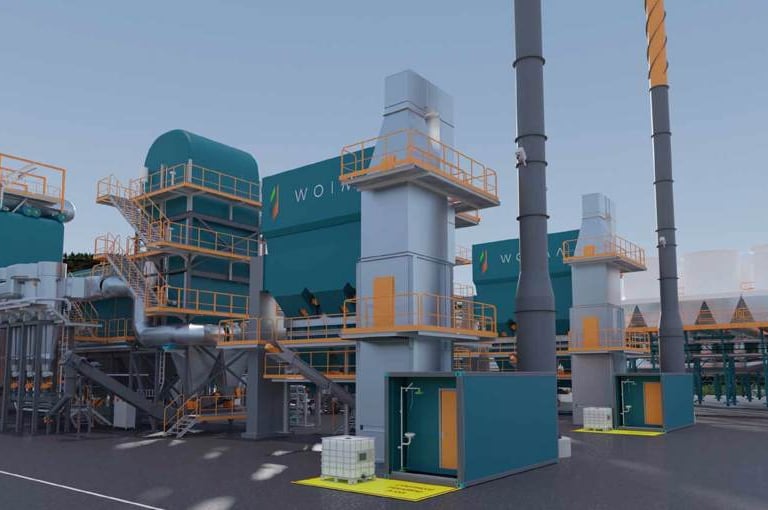
Waste-to-Energy and Incineration Plants
Luft Filtre delivers consistent, reliable, and high-performance solutions even under the most challenging process conditions.
Waste-to-energy and incineration plants are among the most complex industrial applications for filtration due to high temperatures, abrasive fly ash, acidic gases (HCl, SO₂, HF), and toxic metal vapors (Hg, Cd, Pb). In these facilities, achieving regulatory emission compliance and maintaining continuous system operation make the high performance of filter bags critically important.
Key process stages include: boiler outlets, gas cooling systems, post-activated carbon injection lines, dioxin/furan control points, and flue gas treatment units. Each stage presents unique temperature, humidity, acidic gas concentration, and particulate characteristics, making process-specific filter bag selection essential.


Filtration Applications in Waste-to-Energy and Incineration Plants
Boiler Outlet Filters:
Flue gas temperatures typically range from 160–240°C, containing HCl, SO₂, NOx, and heavy metals. In these conditions, PTFE-coated PPS, P84, or fiberglass-based filter bags are used. For continuous high performance, ePTFE membrane-coated fiberglass filter bags are recommended.
Acid Gas and Dioxin Control:
To capture fine particulates and toxic gases generated after activated carbon and lime injection, high surface filtration efficiency is required. ePTFE membrane-coated fiberglass filter bags are preferred, playing a critical role in minimizing dioxin and furan emissions.
High Moisture and Thermal Shock Risk Areas:
Filters near wet gas cooling zones should use PTFE-coated or hydrophobic-treated bags. This prevents moisture penetration into the fabric, reducing residue buildup and differential pressure increases.
Fly Ash and Heavy Metal Vapor Filtration:
To capture ultrafine metal oxide particles and prevent emission leaks, seamless (ultrasonically welded) ePTFE membrane bags are recommended. Bag integrity directly impacts heavy metal emission control.
General Dust Collection Systems:
In secondary processes such as fuel preparation, waste loading, and ash handling, abrasion-resistant polyester filter bags provide cost-effective, long-lasting solutions.


Our Experience in Waste-to-Energy and Incineration Plants
Waste-to-energy facilities are among the most complex filtration processes due to high-temperature combustion, acidic gas emissions, dioxin/furan formation, abrasive particulates, and variable gas flow rates.
At Luft Filtre, we provide PTFE, P84, and fiberglass-based filter bags specifically designed for these systems, ensuring high-temperature and chemical resistance. ePTFE membrane coatings allow us to simultaneously achieve low emissions and low differential pressure.
Through waste-specific flue gas analysis, dust characterization, and thermal profiling, we select the optimal filter material tailored to the requirements of each system.
Additionally, our filter solutions are compatible with SCR and SNCR gas treatment systems, maximizing filtration efficiency and extending maintenance intervals.
In this sector, where strict emission targets are critical, Luft Filtre ensures maximum filter life, high performance, and environmental compliance.
Contact Us
© 2025 Luft Filtre. All rights reserved.
Address
Luft Filtre Sanayi ve Tic. Ltd. Şti.
Barbaros Mah. Begonya Sk.
Nidakule Ataşehir Batı No.1/2 Ataşehir,
İstanbul, Türkiye
Contact US
+90 531 266 35 79 (Head Office)
info@luft-ft.com
sales@luft-ft.com
